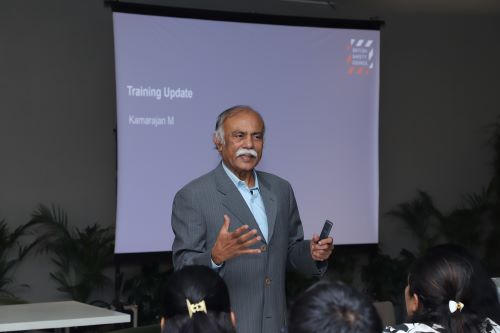The government has promised to provide social security benefits to workers employed by app platforms, but trade unions say progress in delivering them is painfully slow.
Features
Indian gig workers fight for social security benefits
It’s been estimated that over 15 million Indians work in the gig economy. These are the people who drive us around in Uber and Ola taxis, deliver food through Zomato and Swiggy, and provide a wide array and growing number of conveniences – all arranged through app-based technology platforms.
These gig platform workers can be computer coders, graphic designers, psychologists, taxi drivers, beauticians, or even people performing household tasks like cleaning someone’s home.
According to a report by consulting firm Boston Consulting Group and Michael & Susan Dell Foundation, over 200 million people are employed in the gig workforce globally. The same report notes that the gig economy could add up to 90 million jobs to the Indian economy and contribute an incremental 1.25 per cent to India’s gross domestic product (GDP).
 Credit: iStock: lakshmiprasad
Credit: iStock: lakshmiprasad
However, the gig economy, which was once heralded as offering workers the freedom to choose where, when and what to work on, is proving to be far from the utopia that was promised.
For many people entering the gig economy, the flexible nature of the work initially allows for a sense of control over their working hours, time and finances.
However, over time, many gig workers complain about the lack of sick pay if they are unable to work due to illness, discover their income fluctuates unexpectedly with demand, and realise there is no chance of achieving employment security, rights and protections and related benefits by becoming a formal employee of the app business.
Also, since their initial launch, the way many app platforms operate has changed, meaning the workers are often now forced to work longer hours to obtain a reasonable and stable income.
As a result, thousands of drivers and delivery workers are being subjected to risks to their physical and mental health in order to earn a basic and liveable wage.
Poor working conditions of app-based drivers
Between July and November 2019, the Indian Federation of App-based Transport Workers (IFAT) and the International Transport Workers’ Federation (ITF) spoke to 2,128 respondents across six cities to examine the working conditions of Ola and Uber drivers.
They found on average drivers were spending close to 16-20 hours in their cars on each day they had logged on to the relevant app to register themselves available for work. Due to these long hours, almost 90 per cent of the respondents claimed they got less than six hours of sleep. The report warned this endangered the drivers, their passengers and other road users due to the potentially increased risk of fatigue-related road crashes. It also posed a health risk to the drivers themselves due to their lack of sleep, it said.
Backache, constipation, liver issues, waist pain and neck pain were the top five health ailments that app-based transport workers reported suffering as a consequence of their work, the IFAT/ITF report found.
Also, there is a complete absence of social security and protection – a glaring 95.3 per cent claimed to have no form of insurance covering accidents, or health and medical costs and care.
Commenting on the absence of social security protections, a delivery partner with Swiggy said: “Working in the gig economy is risky at the best of times. If you fall off your bike, or get sick, you’re on your own. Your income stream is cut off exactly when you need it most.”
Most platform companies classify gig workers as self-employed, and this allows the companies to exempt themselves from the legal obligation to provide certain employment protections.
Many commentators believe that the business model of these platform companies is founded upon the exploitation of workers. They argue the model puts all of the physical risks of doing business onto workers and allows platform companies to absolve themselves of significant responsibility.
This has led to heated debates over this sector of the job market. On one side, advocates of the gig economy laud the employment model for its flexibility and for fuelling a sense of entrepreneurship. On the other side, critics highlight the lack of benefits and job security associated with these app-based jobs. Many commentators argue that gig workers are exploited and paid poorly, while conventional, full-time employees receive steady paychecks, benefits, paid days off and vacation time.
But, for millions, it’s a way to make a living – albeit, at a subsistence level.
The majority of people in the gig economy have been pushed into this space because they have lost their job and have no other employment prospects. This was the case for Delhi-based Zomato delivery worker Salil Tripathi, who lost his life after a drunk Delhi police constable crashed his vehicle into him while he was waiting for a food order in early January. He died on the spot, leaving behind his wife, 10-year-old son and mother.
The hotel management graduate previously worked as a manager at a restaurant in Delhi, but lost his job after the business shut down during the first wave of Covid-19.
Tripathi’s wife Sucheta said: “He had to join Zomato to help pay for our son’s school fees and other expenses. He worked very hard… the job was exhausting and he was not earning as much.”
According to Tripathi’s elder brother Manoj, the 38-year-old worked seven to eight hours every day delivering food, and was earning Rs 8,000-Rs 10,000 a month based on the number of orders and the workload. Before the pandemic struck, he was earning Rs 40,000-Rs 50,000 per month at the restaurant.
After Tripathi’ s tragic death attracted the media glare, Zomato CEO Deepinder Goyal took to Twitter and assured the business would help in processing an insurance payout of Rs 10 lakh to Tripathi’s family. Zomato employees contributed Rs 12 lakh to the family and a fundraising page started by Tripathi’s wife raised about Rs 9 lakh.
While Zomato’s move came as a welcome step, Tripathi’s story highlights, among other things, the meagre pay delivery partners earn even as they risk their lives as part of the essential workforce during lockdowns and curfews.
According to a Zomato official, there has been an increase in the number of delivery partners they employ since the lockdown. “Most of them are students or individuals who want to do an interim gig for two to three months before they can land a better job.”
Commentators argue that the longer a person remains a gig or platform worker, it becomes harder – and almost impossible – to break free and obtain a well-paying job as a permanent employee with a reasonable future.
Decline in earnings
Meanwhile, a recent report by the UK-based Fairwork Foundation, in collaboration with the Oxford Internet Institute, found that the earnings of app-based platform workers or gig workers in India have declined over the last two years.
The Fairwork India Ratings 2021: Labour Standards in the Platform Economy, now in its third year of publication, serves as an indictment of the working conditions for faced by this growing class of unorganised workers.
This year, the report ranks 11 Indian start-ups, including Amazon, BigBasket, Dunzo, Flipkart, Ola, PharmEasy, Porter, Swiggy, Uber, Urban Company and Zomato, which engage contract gig workers.
It scores them out of 10, based on their performance against five criteria, namely: fair pay, fair conditions, fair contracts, fair management and fair representation.
In the Fairwork India Ratings for 2021, Flipkart leads the table with seven points, Urban Company follows with five, BigBasket and Swiggy each score four, Zomato achieved three, Amazon, Dunzo and PharmEasy one, and Ola, Porter and Uber earned zero points.
The report found that workers’ take-home earnings declined across all the platforms studied, due to the increase in work-related costs (such as fuel costs and commissions), decreased demand during the pandemic and platforms’ cuts in rate cards and incentives. This year, BigBasket, Flipkart, and Urban Company have committed to ensuring that all gig workers on their platforms will earn at least the hourly local minimum wage after factoring in their work-related costs. However, the Fairwork report found that no platform evidenced paying a living wage to their workers.
The Fairwork report says that representation through a collective body or trade unions is a vital dimension of fairness at work. However, it concludes: “It is disconcerting to note that despite the rise in collective actions by gig workers in the country, none of the platforms studied expressed a willingness to recognise a collective body of workers. Consequently, no platform earned either the basic or the advanced point for Fair Representation.”
The Fairwork India Ratings for the previous year 2020 had revealed how gig workers are left in the cold when it comes to redressal of their grievances. “Workers from the other four platforms (namely Ola, Swiggy, Uber and Zomato) were increasingly dissatisfied with the communication channels made available to them,” stated the 2020 Fairwork report.
It added: “The helpline numbers provided were either unresponsive most of the time or had premeditated responses. Workers on these platforms added that ID blocks without warning were frequent and that there was no documented process to appeal when they were blocked. Workers also complained that they had to report the block at the platform hub in order to be unblocked, which effectively meant losing out on daily earnings and daily/weekly incentives.”
Legal bid for social security rights
In September 2021, the IFAT filed a Public Interest Litigation (PIL) in the Supreme Court demanding the union government provide social security benefits for app-based transport and delivery gig workers, under the Unorganised Workers Social Security Act, 2008.
In December, the court issued a notice to the union government and food delivery and taxi aggregator platforms such as Swiggy, Zomato, Ola, Uber asking them to consider whether the gig workforce in India could be included in the ‘unorganised labour’ category so they can benefit from social security benefits, including insurance, provident fund, gratuity and maternity benefits.
In the same month, the central government’s labour ministry told Parliament that the proposed new Code on Social Security – which it says will become law in 2022 – recognises gig workers as a new occupational category, where there is no traditional employee/employer relationship.
“The code envisages various benefits for gig workers, including life and disability cover, accident insurance, health and maternity, old age protection, creche and other benefits,” the ministry said.
The labour ministry added the new code will see the introduction of a social security fund for gig workers. According to the government, the fund will be part-funded by a levy on the relevant app platforms of between one and two per cent of their turnover, up to a limit of five per cent of the amount paid or payable by an aggregator to such workers.
The government says that the introduction of the Social Security Code will address many of the issues currently plaguing the gig economy in India. It will mean there will be compulsory registration of both gig and platform workers on an online portal to ensure they can obtain social security benefits.
So far, 727,927 gig workers have registered with the government’s ‘e-shram’ portal, an electronic portal established in August 2021 to create a national database of workers in the unorganised sector, including gig, platform and migrant workers. The system is designed to ensure that unorganised workers can obtain the social security payments and protections they are entitled to.
All eligible registered unorganised workers, including gig workers, are also entitled to the benefit of accidental insurance cover of Rs 2 lakh for a year free of cost through the Pradhan Mantri Suraksha Bima Yojana (PMSBY) scheme.
However, Shaik Salauddin, national general secretary of the IFAT and founder and state president of the Telangana Gig and Platform Workers Union, says the introduction of social security benefits for gig and platform workers has not moved past the draft stage as the Social Security Code has yet to become law.
“We have been meeting officials from the ministries for faster implementation of this scheme which is likely to entail the health, insurance benefits to lakhs of gig workers. But there has been no further announcement,” he said.
He added: “We are hopeful that our struggle, our problems will be heard thoroughly by the Supreme Court judges. What we have demanded is nothing out of the ordinary. What we are demanding in the PIL is part of our rights under the existing law, and the law should be implemented as soon as possible.”


FEATURES

Long working hours in India: debate rages over the impact on wellbeing
By Orchie Bandyopadhyay on 10 March 2025
Calls from high profile leaders of both Indian and global information technology companies for Indian and international workers to work longer hours to boost economic output and speed up the development of AI technology have led to warnings about the threat to workers’ health and work-life balance.

Safety training: top tips for improving its effectiveness
By Marimuthu Kamarajan on 10 March 2025
Health and safety training is a vital tool for improving the safety performance of a business. However, employers must first address any cultural problems that could undermine its effectiveness, such as time pressures encouraging workers to take short-cuts, explains Marimuthu Kamarajan, head of education at British Safety Council.

